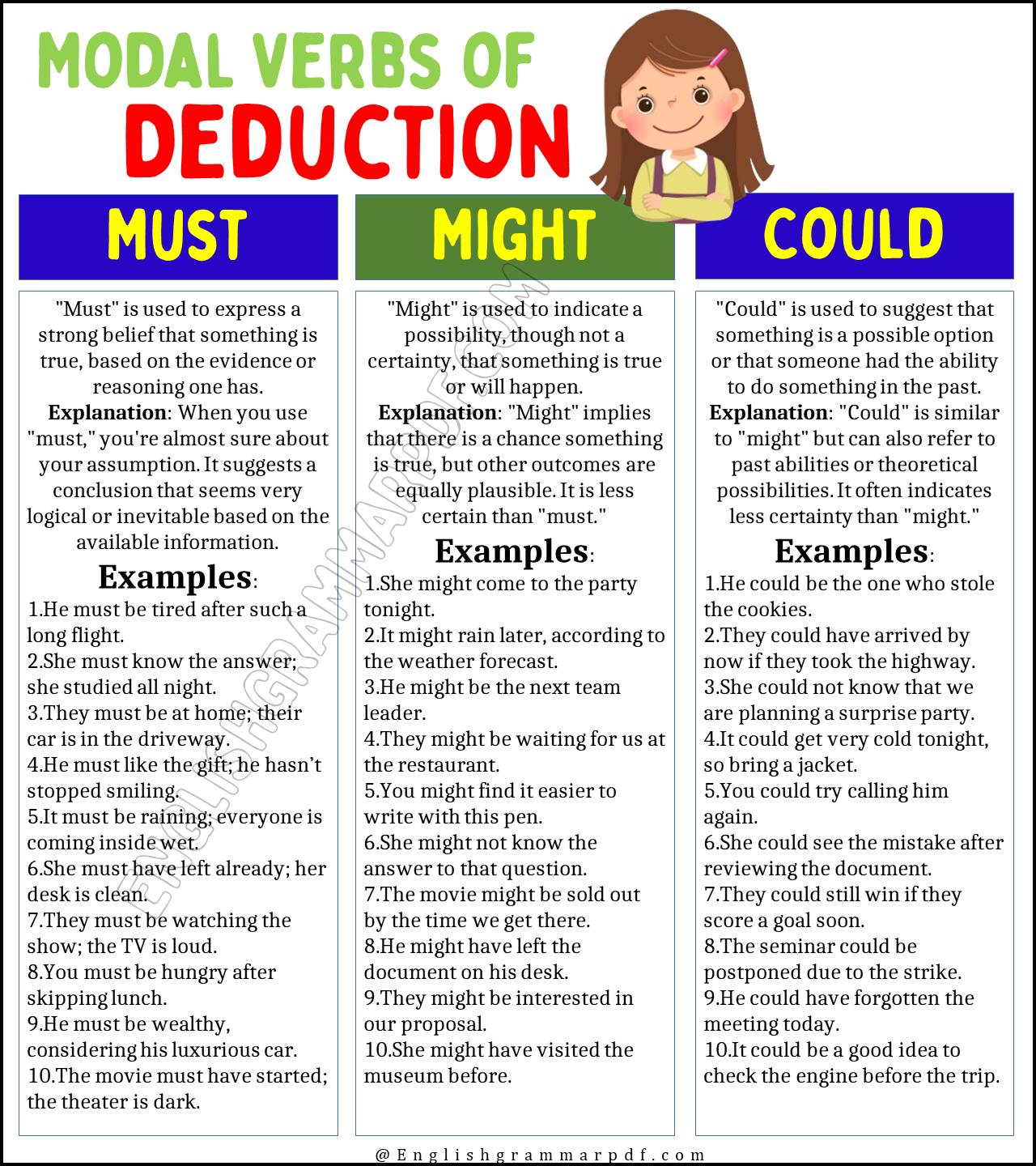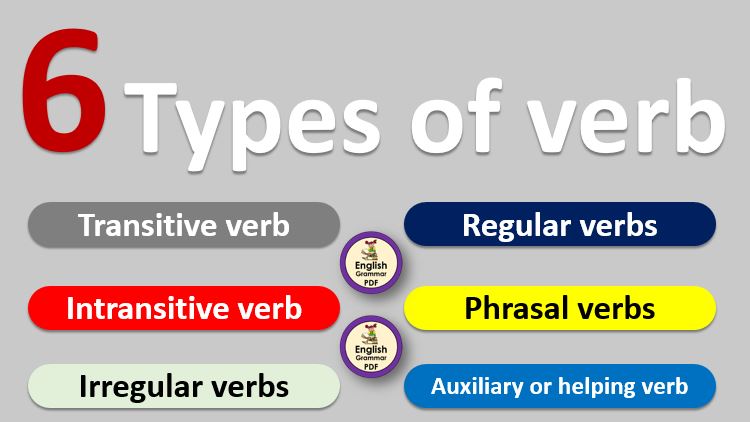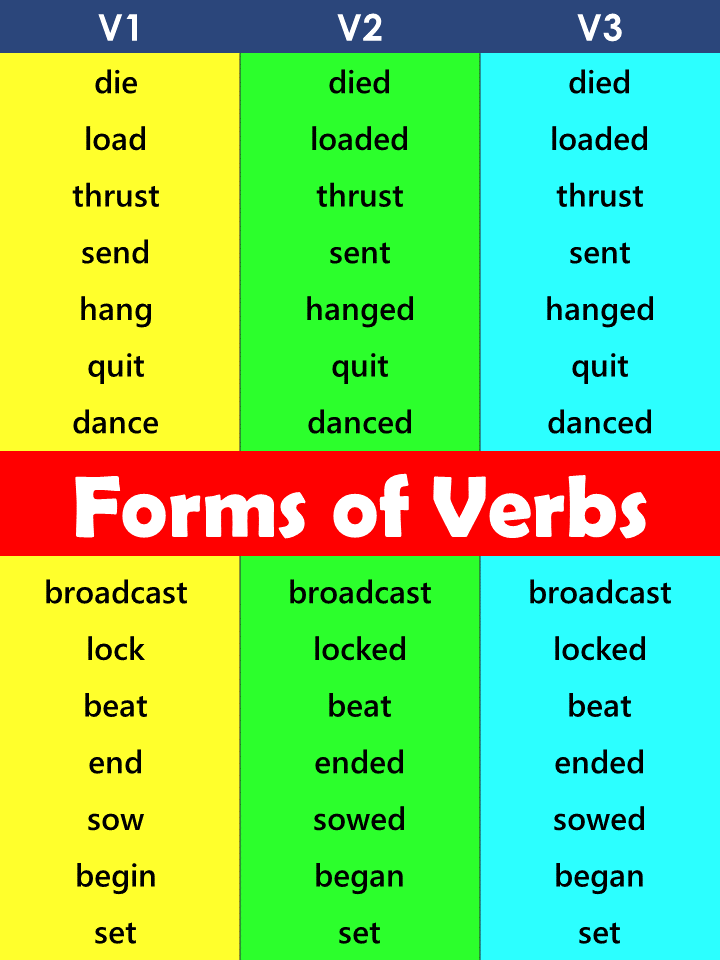Modal verbs of deduction are used to indicate the likelihood or possibility that something is true. They allow us to express different levels of certainty or uncertainty about a fact or situation. Here are the main modal verbs of deduction:
1. Must
“Must” is used to express a strong belief that something is true, based on the evidence or reasoning one has.
Explanation: When you use “must,” you’re almost sure about your assumption. It suggests a conclusion that seems very logical or inevitable based on the available information.
Examples:
- He must be tired after such a long flight.
- She must know the answer; she studied all night.
- They must be at home; their car is in the driveway.
- He must like the gift; he hasn’t stopped smiling.
- It must be raining; everyone is coming inside wet.
- She must have left already; her desk is clean.
- They must be watching the show; the TV is loud.
- You must be hungry after skipping lunch.
- He must be wealthy, considering his luxurious car.
- The movie must have started; the theater is dark.
2. Might
“Might” is used to indicate a possibility, though not a certainty, that something is true or will happen.
Explanation: “Might” implies that there is a chance something is true, but other outcomes are equally plausible. It is less certain than “must.”
Examples:
- She might come to the party tonight.
- It might rain later, according to the weather forecast.
- He might be the next team leader.
- They might be waiting for us at the restaurant.
- You might find it easier to write with this pen.
- She might not know the answer to that question.
- The movie might be sold out by the time we get there.
- He might have left the document on his desk.
- They might be interested in our proposal.
- She might have visited the museum before.
3. Could
“Could” is used to suggest that something is a possible option or that someone had the ability to do something in the past.
Explanation: “Could” is similar to “might” but can also refer to past abilities or theoretical possibilities. It often indicates less certainty than “might.”
Examples:
- He could be the one who stole the cookies.
- They could have arrived by now if they took the highway.
- She could not know that we are planning a surprise party.
- It could get very cold tonight, so bring a jacket.
- You could try calling him again.
- She could see the mistake after reviewing the document.
- They could still win if they score a goal soon.
- The seminar could be postponed due to the strike.
- He could have forgotten the meeting today.
- It could be a good idea to check the engine before the trip.



